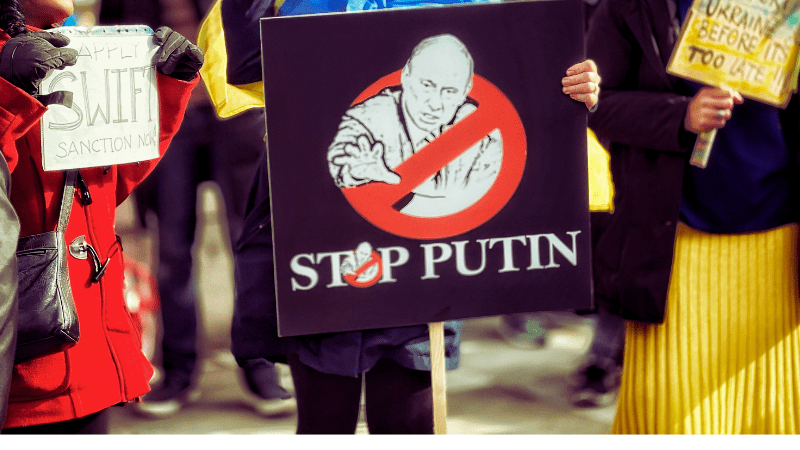This article originally appeared in the Toronto Star.
By Marcus Kolga, January 31, 2024
As we approach the third year of Russia’s unprovoked invasion of Ukraine, the stakes for the security of Canada and our allies has never been higher. Ukraine’s victory is not just a moral imperative: it will prevent Vladimir Putin from expanding his current conflict beyond Ukraine.
In recent weeks, high-ranking allied military officials have sounded alarms about a looming military confrontation with Russia.
“We hear threats from the Kremlin almost every day,” German Defence Minister Boris Pistorius warned earlier in January. “So we have to take into account that Vladimir Putin might even attack a NATO country one day,” possibly within five to eight years, he added.
Pistorius’s warnings have been echoed by many other NATO allies. Rob Bauer, Dutch admiral and NATO military committee chair, said in January that allies “must expect the unexpected” and “that’s why we are preparing for a conflict with Russia.” Norway’s defence chief, Erik Kristoffersen, warned recently that NATO has “two, maybe three” years to prepare for a potential assault by Putin’s armies.
The West collectively ignored warning signs about Putin’s appetite for conquest in the past. In 2007, it failed to respond to Russia’s attempt to destabilize Estonia and its cyberattack against the Baltic nation. In 2008, Russia invaded Georgia without any consequence and did so again in 2014, when it invaded Ukraine.
The latest phase of Russia’s war against Ukraine has laid bare Putin’s ambitions.
While the threat to Canada’s European allies is clear, the threat of conflict with Russia in the Arctic is equally concerning.
Over the past two decades, Russian armed forces have undertaken an unprecedented militarization of the Arctic, refurbishing and constructing dozens of bases to enhance offensive capabilities. Russia now has a third more Arctic military bases than NATO, and experts suggest that it will take at least 10 years for NATO to catch up.
The official Russian 2035 Arctic strategy advises preparation for Arctic conflict and expansion of its Arctic territory. In 2021, Russia submitted acclaim to all of the resources under the Arctic Sea up to Canada’s 200-mile exclusive economic zone. In late December, Russia’s naval commander-in-chief, Admiral Nikolai Yevmenov, said in a speech that the Kremlin is prioritizing a “full-scale takeover” of Arctic territories beyond Russia’s exclusive economic zone.
Our failure to acknowledge these very clear and serious warnings could cost us billions in the future — let alone the lives of Canadians who have committed to defending our nation.
Ukraine’s ability to defeat Putin’s armies will determine the long-term cost to Canada and its allies in re-establishing our collective deterrence, and in the worst case, the defence of our collective sovereignty against an attack by Russia. Lithuania’s foreign minister, Gabrielius Landsbergis, has warned that if Ukraine is unable to defeat Russia, “there’s a chance that Russia might not be contained in Ukraine.”
The window to help Ukraine restore its sovereignty and defeat Russia is limited.
Canada must immediately ramp up domestic production of armaments and partner with our allies to produce precision weapons. This will help bolster Canada’s defence capabilities.
Canada is not a helpless middle power. Our economy is larger than Russia’s and combined with our G7 allies, we have the resources to stand up to Putin’s petulant transnational bullying.
The longer Putin’s war continues, the higher the cost for everyone, even in indirect ways like fuel and grocery prices. Canadians grappling with the higher cost of living over the past two years should direct their frustration toward those responsible, namely through the Russian Embassy in Ottawa.
Canada’s long-term security and prosperity are directly linked to Ukraine’s ability to successfully defend itself and restore its sovereignty by defeating Putin’s armies. Turning our backs on Ukraine and allowing Putin to succeed will lead to a world in perpetual conflict, for which all Canadians will be forced to pay a steep personal and collective price.
Marcus Kolga is a senior fellow at the Macdonald-Laurier Institute and director of DisinfoWatch






